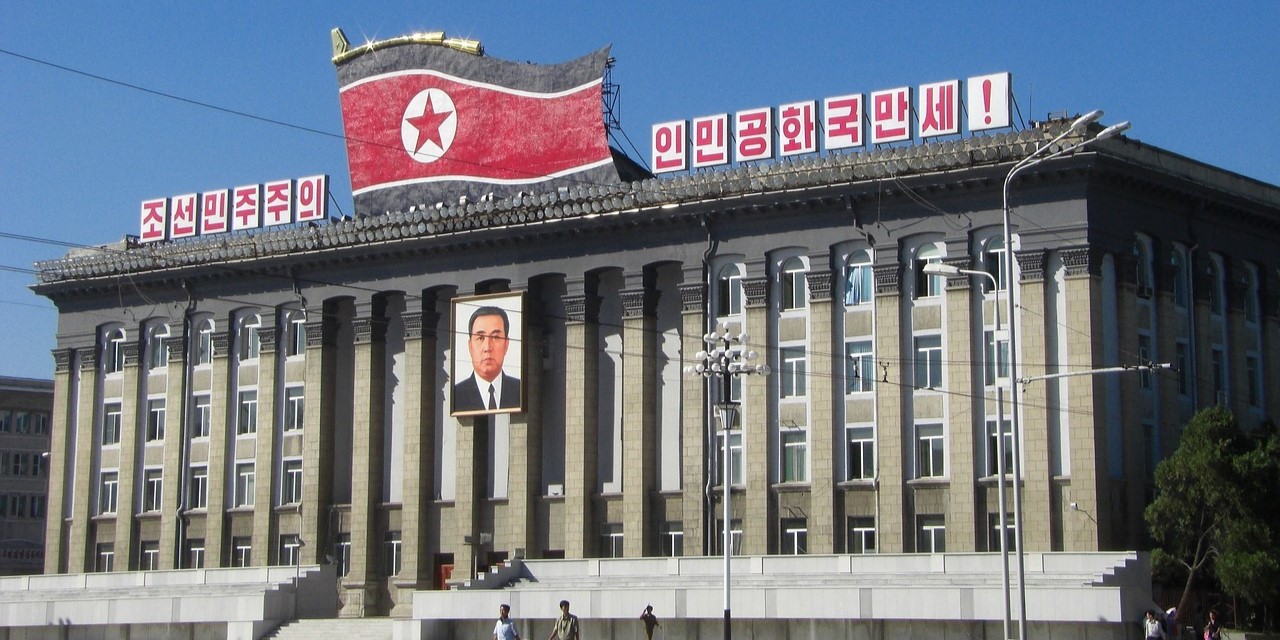
South Korea and the EU condemned North Korea’s contribution of military arms and personnel to Russia as illegal under international law in a joint statement on Nov. 5. The statement follows recent reports that Russia has deployed North Korean troops in its war against Ukraine. According to a White House press briefing, over 3,000 North Korean soldiers were moved to Vladivostok in October, and underwent training at sites in eastern Russia. This was the first dispatchment of an estimated 12,000 North Korean troops said to be readied for deployment to fight Ukraine. South Korea and the EU maintain that the deployment violates multiple UN Security Council (UNSC) resolutions as well as Russian obligations under the Nuclear Non-Proliferation Treaty (NPT).
Since 2006, North Korea has been sanctioned by nine UNSC resolutions in response to the state’s development of nuclear and ballistic-missile capabilities following its declaration of withdrawal from the NPT in 2003. Specifically, Resolutions 1718 and 1874 banned all imports of materials and technologies that could contribute to North Korea’s “WMD programs and ballistic missile activities,” as well as transfers of weapons to or from North Korea, except small arms with notification to the UNSC. Under this sanctions regime, the transfer of ballistic missiles, artillery shells, and other heavy weapons from North Korea to Russia in exchange for economic and military assistance would constitute a violation.
The EU also stressed that North Korea’s deployment of troops to Ukraine would constitute participation in Russia’s illegal war of aggression. Experts have noted that such deployments would likely violate fundamental principles of international law such as the UN Charter’s Article 2(4) prohibition on the “use of force against the territorial integrity or political independence of any state.” While exceptions for UNSC authorization and self-defense exist, Russia’s invasion of Ukraine was not authorized by the UNSC. The invasion is also widely considered to be an act of aggression and not an act of legitimate self-defense, which can only be triggered by a country in response to an intentional armed attack directed against it. According to the International Court of Justice in Nicaragua v. United States of America, any use of force in such a case must be “proportional to the armed attack and necessary to respond to it.”
While North Korea and Russia have not explicitly confirmed whether North Korean troops have been deployed to Ukraine, North Korea’s vice foreign minister claimed that sending troops to support Russia would be in accordance with international law. Russia and North Korea officially expanded their military cooperation by ratifying a mutual defense pact in June.
From Jurist, Nov. 6. Used with permission.
Note: Ukraine says that its troops have already engaged with North Korean soliders in Russia’s Kursk oblast. (AP)
Photo: gfs_mizuta/Pixabay via Jurist





G7 condemns North Korea ballistic missile launch
The G7 Foreign Ministers issued a statement Nov. 5 condemning North Korea’s launch on Oct. 31 of an Intercontinental Ballistic Missile (ICBM), which landed in the sea. The United Nations also expressed concern over the missile launch and the potential threat it poses to “regional stability.”
The G7 statement condemned the missile launch “in the strongest terms,” and called for “complete denuclearization of the Korean Peninsula.” It demanded that the Democratic People’s Republic of Korea (DPRK) cease its nuclear program, ballistic missile program, and any programs and activities related to “other weapons of mass destruction,” in line with UN Security Council resolutions.
The UN office at Geneva issued a meeting in response to the missile launch. This is, according to the UN, the DPRK’s 11th ICBM launch. Assistant Secretary-General Khaled Khiari commented that the ICBM launch also creates “serious risks to international civil aviation and maritime traffic, with the potential for unintended incidents, as North Korea had issued no safety alerts.”
Japan also expressed concern over the launches during the meeting, highlighting that this recent test “landed around only 200 kilometers” from the Japanese island of Hokkaido. and that “due to its trajectory and flight time,” was “more threatening than ever.”
The Republic of Korea brought attention to the Treaty on the Non-Proliferation of Nuclear Weapons. UN Ambassador Hwang warned that:
China took a neutral stance and called on all parties to use pragmatism to “prioritize peace and stability,” while Russia expressed that the West was seeking to “demonize” the DPRK.
The DPRK’s ambassador responded that the missile test did not have a major impact on the security of neighboring countries, and expressed that the UN meeting was “contrary to the spirit of the UN Charter of state sovereignty and non-interference in domestic affairs” and was an example of “extreme double standards.” (Jurist)